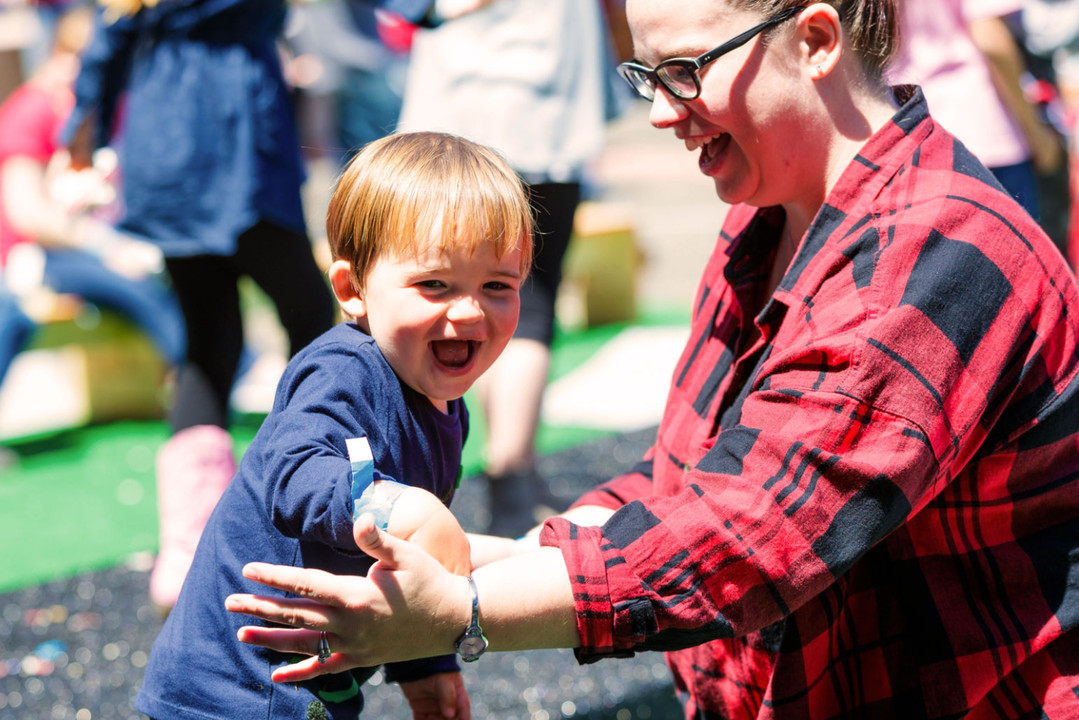What Helps Parents Cope With Loss?
When facing loss, parents cope best with support systems like group therapy, online forums, and family networks. Practice self-compassion and self-care through mindfulness, journaling, and baths. Engage in therapeutic activities such as art therapy and nature walks. Honor your child’s memory with celebrations and creating legacies. Healing rituals and coping mechanisms like meditation and painting offer solace. Embrace moments of joy amidst the pain and allow yourself to grieve. Seek meaning by reflecting on shared memories, seeking spiritual healing, and finding support.
Key Takeaways
- Group therapy and family networks offer emotional support and connection.
- Prioritize self-care and practice mindfulness for nurturing the grieving process.
- Engage in therapeutic activities like art therapy and journaling for healing.
- Celebrate the child’s life to honor their memory and create legacies.
- Meaningful rituals and ceremonies aid in navigating the healing process.
Seeking Support From Others

When coping with loss, seeking support from others can help you navigate through the difficult emotions and challenges that arise. Group therapy and online forums can provide a safe space to connect with individuals who understand your pain and offer valuable insights.
In group therapy, you can share your experiences, listen to others’ stories, and receive guidance from a trained therapist, fostering healing and growth in a supportive environment.
Family support and friend networks play an essential role in helping you cope with loss. Your family members can offer comfort, companionship, and a sense of belonging during this challenging time. Lean on them for emotional support, practical help, and moments of solace.
Similarly, friends can provide a listening ear, distraction from grief, and opportunities for social activities that promote well-being.
Practicing Self-Compassion
Engaging in self-compassion is an essential aspect of coping with loss, allowing you to nurture yourself through the grieving process with kindness and understanding. During this challenging time, practicing self-compassion involves incorporating self-care practices and mindfulness techniques into your daily routine.
Remember, it’s okay to prioritize your well-being and give yourself the care you need.
Self-care practices can include activities like taking a warm bath, going for a walk in nature, journaling your thoughts and feelings, or simply allowing yourself some quiet moments of reflection. These practices can help you reconnect with yourself and provide a sense of comfort during the grieving process.
Mindfulness techniques, such as deep breathing exercises or meditation, can also be beneficial in promoting self-compassion. By being present in the moment and acknowledging your emotions without judgment, you can cultivate a sense of acceptance and peace within yourself.
Engaging in Therapeutic Activities

Incorporating therapeutic activities into your routine can provide valuable support and aid in your journey of healing from loss. Engaging in art therapy or journaling can offer a creative outlet for processing emotions and expressing grief in a tangible way. These activities allow you to explore your feelings in a safe space, fostering self-reflection and healing.
Nature walks and mindfulness practices can also play an essential role in your healing process. Spending time in nature can bring a sense of peace and connection to the world around you. It provides an opportunity for quiet contemplation and a break from the demands of daily life.
Mindfulness practice, such as meditation or deep breathing exercises, can help you stay present in the moment, reducing stress and promoting emotional well-being.
Honoring the Memory of the Child
To honor the memory of your child, finding meaningful ways to celebrate their life can provide comfort and solace during this difficult time. Remembering and memorializing moments shared with your child can help keep their spirit alive in your heart.
Consider creating a memory box filled with mementos, photos, and cherished items that remind you of your child. This box can serve as a tangible connection to their presence and a source of comfort when you need it most.
Legacy building is another powerful way to honor your child’s memory. You can plant a tree in their name, start a scholarship fund, or participate in charity events that align with causes your child cared about. By creating a lasting legacy in your child’s honor, you make sure that their impact on the world continues to be felt even after they’re gone.
Creating Rituals for Healing
Consider establishing meaningful rituals to help you navigate the healing process after experiencing loss. Healing traditions and community support can play an essential role in your journey towards healing.
Personal ceremonies tailored to your beliefs and emotions can provide solace during difficult times. Engaging in group rituals, whether with family, friends, or a support group, can offer a sense of unity and shared healing experience.
Drawing from healing traditions that resonate with you can bring comfort and a sense of connection to something larger than yourself. These practices can help you find peace and acceptance as you navigate the complexities of grief.
Community support is crucial during this time, and participating in group rituals can reinforce the feeling that you aren’t alone in your grief.
Embracing Moments of Joy

Finding and embracing moments of joy can be a powerful tool in your journey towards healing after experiencing loss. While grieving, it’s essential to allow yourself to also find happiness in small moments. Celebrating milestones, whether big or small, can help shift your focus towards the positive aspects of life. By recognizing and appreciating these moments, you can begin to cultivate a sense of hope and lightness in your heart.
Embracing joy doesn’t mean forgetting or diminishing your grief; it means allowing yourself to experience a range of emotions, including happiness. Engaging in activities that bring you joy, spending time with loved ones, or even simply taking a moment to appreciate the beauty around you can all contribute to your healing process.
Allowing Yourself to Grieve
It’s okay to feel overwhelmed and sad during this difficult time. Acknowledge your emotions and give yourself permission to grieve.
Acknowledge Your Emotions
Acknowledge your emotions openly and allow yourself to grieve, as it’s a vital and important part of the healing process after experiencing loss. When dealing with the loss of a child, it’s essential to give yourself permission to feel the range of emotions that come with grief. Seeking professional therapy can provide a safe space to explore these feelings and begin the journey of emotional healing.
Grieving is a unique and individual process, and there’s no right or wrong way to navigate it. It’s okay to feel anger, sadness, confusion, or even moments of acceptance. By acknowledging these emotions, you’re taking an active step towards healing. Remember, healing takes time, and it’s important to be patient and kind to yourself throughout the process.
Allow yourself to grieve without judgment. Embrace the waves of emotion as they come and go, knowing that each feeling is valid and a part of your healing journey.
In the midst of grief, be gentle with yourself and allow space for the healing that acknowledging your emotions can bring.
Seek Support From Others
Allow yourself to lean on the support of family, friends, or a support group during this difficult time of grieving. Seeking support from others can provide an essential lifeline as you navigate through the overwhelming emotions that come with loss. Support groups offer a safe space to share your feelings with individuals who understand your pain firsthand. Therapy can also be immensely beneficial, providing you with tools to cope with your grief and work through the healing process.
Remember, you aren’t alone in your grief. Your community and family are there to offer comfort and understanding. Opening up to loved ones about your struggles can help alleviate some of the burden you may be feeling. Their presence and listening ear can provide a sense of solace during this challenging period.
In times of loss, it’s important to let yourself grieve and allow others to support you through it. Whether through support groups, therapy, or the embrace of your community and family, seeking support from others is a crucial step in healing from the pain of loss.
Practice Self-Care Activities

Engage in self-care activities that support and facilitate your grieving process, allowing yourself the time and space needed to navigate through your emotions. Meditation retreats can provide a peaceful environment to reflect and find inner solace. Through mindfulness practices at these retreats, you may discover a sense of calm amidst the storm of grief.
Journaling can be a powerful tool for processing your thoughts and emotions. Take time each day to write down your feelings, memories, and struggles. This practice can help you gain clarity and release pent-up emotions that you may be holding inside.
Nature walks offer a soothing way to connect with the world around you. Spending time outside, surrounded by the beauty of nature, can bring a sense of peace and perspective. Allow yourself to breathe in the fresh air and find moments of tranquility amidst the trees and flowers.
Painting is another expressive outlet that can help you channel your emotions into art. Whether you’re a seasoned artist or a novice, putting brush to canvas can be a therapeutic way to externalize your feelings. Let the colors and shapes flow freely, allowing your grief to take form in a visual representation.
Finding Meaning in the Loss
Through reflecting on shared memories and embracing the emotions that arise, you can begin to uncover the deeper significance and lessons within the loss you have experienced.
Finding purpose in the midst of grief can provide a sense of direction and comfort as you navigate through the pain. By seeking out the spiritual healing that resonates with you, whether through prayer, meditation, or connecting with your faith community, you may find solace and a renewed sense of hope.
During this challenging time, it’s essential to allow yourself the space to grieve and process your emotions fully. By acknowledging the depth of your feelings and honoring your journey, you can gradually discover meaning in the loss.
Remember that healing is a non-linear process, and it’s okay to seek support from loved ones or a professional counselor as you explore the significance of your loss.
Frequently Asked Questions
How Can Parents Navigate the Guilt and Blame Associated With Loss?
Handling the guilt and blame tied to loss can be overwhelming. Remember, self-care is essential. Therapy offers a safe space to process emotions. Seek support groups and try journaling to express feelings. You are not alone.
What Role Do Spirituality and Faith Play in the Coping Process?
Spirituality and faith can offer solace during tough times. Prayer support strengthens your connection to something bigger, providing comfort. Community gatherings foster a sense of togetherness, reminding you that you’re not alone in your grief.
Is It Normal to Experience Physical Symptoms of Grief?
Experiencing physical reactions like fatigue, headaches, or changes in appetite during grief is common. Remember, everyone copes differently. Utilize coping strategies such as exercise, talking to a therapist, or seeking support from loved ones.
How Can Parents Address the Fear of Forgetting Their Child?
To address the fear of forgetting your child, consider memory preservation like creating a memory box. Use coping mechanisms such as journaling or talking about your child. Seek support from loved ones and professionals, and prioritize self-care to honor your child’s memory.
Are There Ways to Include Other Family Members in the Healing Process?
Involving family members in the healing process can provide essential support. Engage in healing activities or therapy together to navigate through the grief as a unit. Strengthening bonds and sharing experiences can foster healing.
Conclusion
Remember, coping with the loss of a child is an incredibly difficult journey, but you aren’t alone.
Seeking support, practicing self-compassion, engaging in therapy, and finding moments of joy can all help you navigate this painful process.
It’s okay to grieve and honor your child’s memory in your own way.
Remember to take care of yourself and lean on your support system during this challenging time.
You’re strong and deserving of love and healing.

Hey there! 👋 I’m a proud mom and passionate writer, sharing my parenting journey. 📝 Join me as I navigate the ups and downs of motherhood, offering tips, advice, and a sprinkle of humor along the way. 🌟







